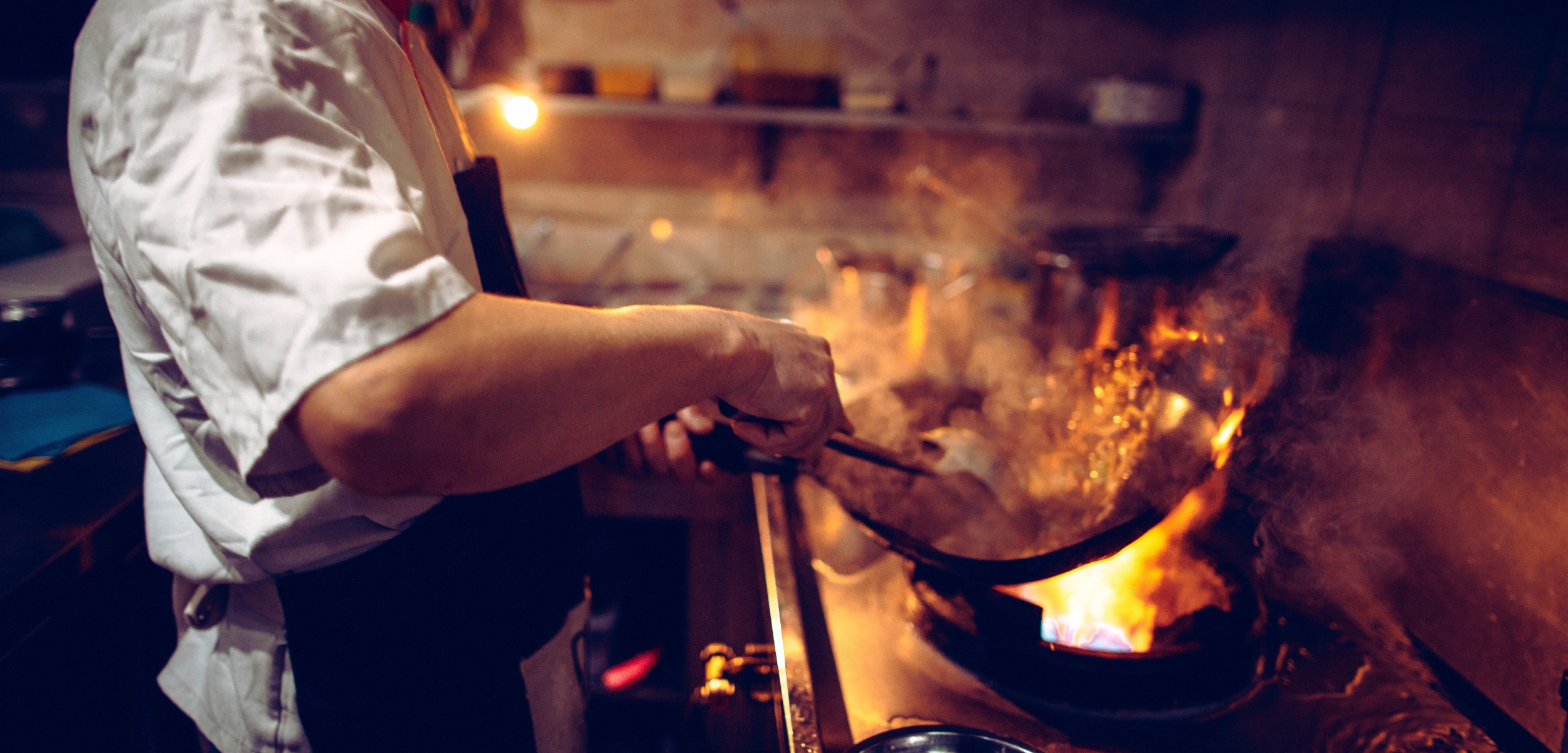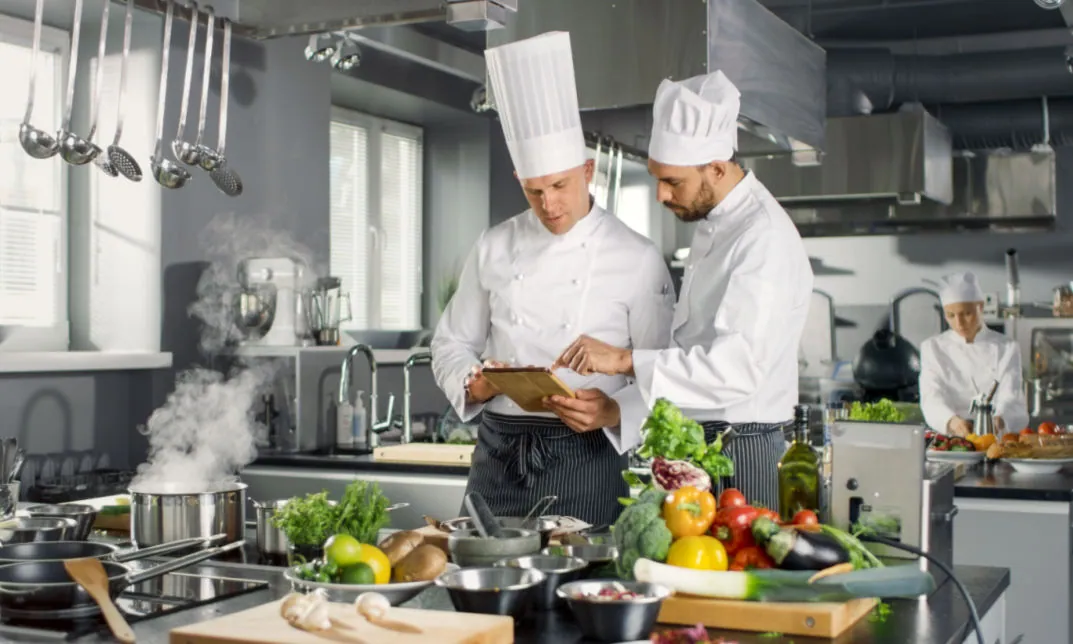No products in the basket.
Wondering how to start being a chef when you haven’t worn an apron in years—or maybe ever? Don’t worry, you’re not alone. You don’t need to be fresh out of cooking school to begin a fun new job. Whether you’re 18 or 48, kitchens always need people who care and work hard. All you need is the drive to learn, the willingness to start small, and a real love for food. This guide shows exactly how to start being a chef, even if you’ve never worked in a kitchen before.
How to Start Being a Chef: Embrace Your Starting Point
Let’s make one thing clear. Great chefs didn’t start by chopping perfect onions. They took the first step just like you. Maybe you’re changing jobs after years at a desk. Maybe you only know how to make toast. That doesn’t matter. Caring and not giving up matters more than experience.
Start small. Look for local cooking classes. Help out at community kitchens. Offer to help in a friend’s café on weekends. Follow a chef and watch how kitchens really work. You’ll quickly learn if this busy, creative life excites you.
Essential Chef Skills for Beginners
Starting your chef journey means learning a few key skills. Don’t worry—you don’t need to know everything right away. Just focus on the basics:
Food Safety Basics
You really need to learn food safety first. Every chef must keep people safe from getting sick. Get a Level 2 Food Safety and Hygiene certificate online or from a local college. These courses teach how to wash hands right, store food safely, and avoid spreading germs.
Knife Skills
Every chef needs a good knife. Learn simple ways to cut like slicing, chopping, and dicing. Practice makes perfect—get a chef’s knife, watch some videos, and get used to using it safely. Speed and accuracy come with time.
Cooking Methods
Learn the main cooking methods: grilling, frying, roasting, boiling, steaming, and baking. Try each one at home. See how cooking changes the taste, texture, and look of food. Try new recipes and don’t be scared to mess up.
Taste and Seasoning
Seasoning food right is super important. Learn how to balance salty, sweet, sour, bitter, and umami (savoury) flavours. Keep tasting as you cook. Add seasoning as needed until your food tastes great.

Education Paths: Choose What Works for You
You don’t need an expensive cooking degree to start. Many great chefs learned through hands-on practice. Here are three common paths you can pick:
Cooking School: Classic but Pricey
Cooking schools teach in a clear, step-by-step way. Some courses are short, and some are full degrees. Places like Leiths School of Food and Wine or Le Cordon Bleu London teach at a high level. These courses cover old and new cooking styles.
Apprenticeships: Earn While You Learn
Apprenticeships let you work in a kitchen and learn in a class at the same time. They usually last 12–18 months. You start as a commis chef, helping skilled chefs with food prep and cooking. Check GOV.UK for chef apprenticeships near you.
On-the-Job Training: Learn in Real Kitchens
Many chefs learn by working in kitchens. They start as helpers or food prep workers. This way is hands-on and real. You’ll learn from more experienced chefs and deal with real kitchen jobs every day. It might take longer, but it feels more practical and flexible.
First Chef Jobs: Start Your Kitchen Adventure
Getting your first chef job can feel scary, but it doesn’t have to be. Everyone starts somewhere. Here are a few jobs that are good first steps:
Kitchen Assistant
Kitchen assistants do simple jobs like cleaning, washing dishes, and prepping food. This job helps you learn how a kitchen works and builds your confidence.
Commis Chef
As a commis chef, you help the kitchen team by prepping food and cooking easy dishes. You learn kitchen basics fast and get advice from more experienced chefs.
Junior Chef
Junior chefs have a little more to do. You cook simple meals, prep food, and help with stock and supplies. This job helps you get better quickly.
Moving Up: How to Grow Your Chef Career
Once you’ve started, a chef career has clear steps forward. Each step gives you more skills and more to do:
- Chef de Partie: Runs one part of the kitchen (like desserts, sauces, or meat).
- Junior Sous Chef: Every day, the junior sous chef helps the sous chef run the kitchen.
- Sous Chef: This person is second in charge and helps run the kitchen and make the food.
- Head Chef: Runs the kitchen, makes meals, manages the staff, and takes care of the money.
You could also become a manager in a restaurant or start your own food business. There are many ways to go down the open road.
Trends Shaping the Chef Role in 2025
It’s a fun and quickly changing time for chefs in the UK. You can stay ahead if you know what’s coming:
Experience Is Important
People who eat out today want food that they’ll remember. Chefs have to make food that makes people happy. Scenery, stories, and the way food is given are all important, not just the taste.
Plant-based is now widely used.
Now, more people eat food made from plants. More people will likely ask for vegan and vegetarian choices. And chefs will have to come up with new ways to cook vegetables.
Ethics and Sustainability
People now expect cooks to pick ingredients that are good for the environment. Green kitchens, foods grown nearby, and less trash are all musts. Chefs who care about the earth will stand out.
Tech in Kitchens
Technology makes kitchen work smoother. New tools and apps help with food orders, stock, and prep. Chefs who know how to use tech will save time and work smarter.
Functional Foods
People want food that helps their health. Chefs will use ingredients that boost the immune system, help the gut, and give energy.
Connect With Chef Networks
Knowing other chefs helps a lot. Joining professional groups gives you help, advice, and chances to grow:
- Craft Guild of Chefs: Offers support, events, and cooking contests.
- British Culinary Federation: Helps chefs build careers, meet others, and grow their skills.
Handling Career Change Stress
Changing jobs or starting later in life can feel hard. Here are some tips to manage stress:
- Start Small: Set simple goals, like one cooking class or one kitchen shift per week.
- Seek Support: Talk to your family, friends, or mentors about your goals and feelings.
- Accept Mistakes: Every chef makes mistakes. Learn from them instead of getting upset.
Real Chef Stories: Inspiration You Need
Many famous chefs started later or without formal school training:
- Julia Child: Started cooking at 32 and put out her first cookbook at nearly 50.
- Gordon Ramsay: First wanted to be a football player, then became a chef in his late teens.
Their stories prove that age and background don’t matter—what matters is passion and hard work.
Your Chef Journey Begins Now
Now you know how to start being a chef. You’ve learned the basics, seen your options, and read stories from chefs who made it. The only thing left is to begin.
Start small. Try a new recipe today. Join that cooking class. Help in a café kitchen this weekend. Your fun new job as a chef starts with one small step. Take it. Your kitchen journey is waiting, no apron needed.
Ready to turn your kitchen hustle into real skills? Enrol now in our online Professional Chef Course at Training Tale and start your journey today.



